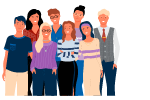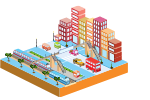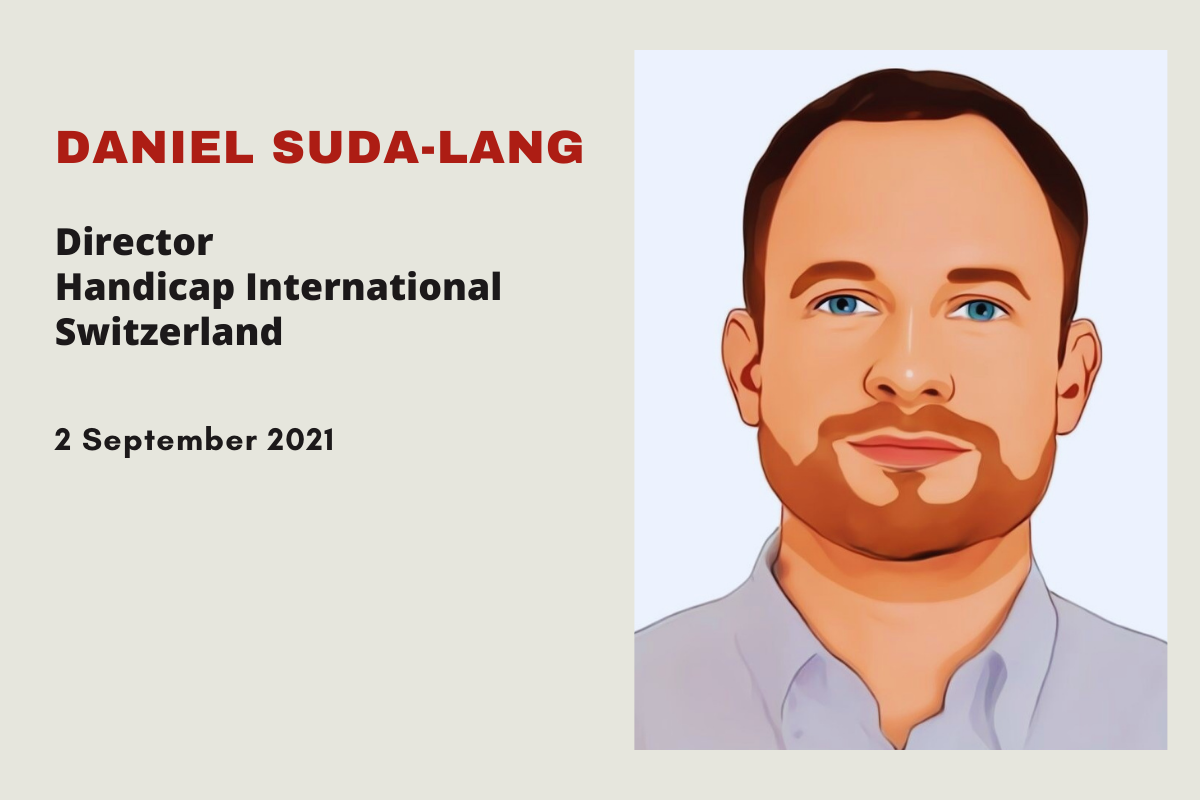The Interview | Daniel Suda-Lang
 |
How would you present your organization in a few words? What entails your position? What is your goal? |
Handicap International (HI) is committed to the social and professional inclusion of people with disabilities and in vulnerable situations. We face many challenges, especially in this pandemic period. Together with my team, we are committed to carrying out our social mission to include people with disabilities in all aspects of social life, particularly in the field of humanitarian aid.
Outraged by the injustice experienced by people with disabilities and vulnerable populations, we aspire to a world of solidarity and inclusion, where differences enrich us and everyone can "live with dignity.”
My job encompasses different functions: to make our missions and commitments known to the general public, partnerst, and international organizations, to explore partnership opportunities, to find the necessary funding for our missions in the field, and to ensure that the activities of the different departments are coordinated so that everyone feels comfortable at work.
 |
Among the concentration of actors in Geneva (IOs, NGOs, permanent missions, academia, and the private sector), who do you work with and how? |
Our strategic location in the heart of Geneva allows us to collaborate with both international actors such as International Organizations, the United Nations as well as Swiss actors at a national and local level.
At the international level, HI plays a central role in relations with different actors: the diplomatic community in Geneva, the United Nations, the ministries of foreign affairs, and the States affected by explosive weapons. We are active in the field of disarmament, humanitarian action, and inclusive development and internationally recognized in the field of victim assistance of explosive weapons. Through our collaboration with other mine action actors, we develop the International Mine Action Standards on victims. Such standards would have a real change in the life of the affected populations.
At the national level, we are part of different networks, such as the Swiss Disability and Development Consortium, a network promoting the rights and inclusion of people with disabilities in Switzerland's international cooperation; and Medicus Mundi Switzerland, a network for international health cooperation and global health.
 |
What are the strengths and weaknesses of Geneva with regards to the development of your activity? |
I consider it ideal to be located in the heart of the international Geneva, close to the Place des Nations. This provides us a strategic position to make our demands visible to the international community and give them weight.
A good example is the Broken Chair monument located at Place des Nations. Created by HI and the International Campaign to Ban Landmines (ICBL), it symbolizes the despair and dignity of armed violence victims. It aims is to remind the obligation of states to protect and help victims. Indeed, it allows everyone to reflect on their own responsibility and encourages action.
 |
|
In 30 years, I imagine a society weakened by an increase of climatic, economic, demographic, and natural risks. In this regard, global governance will require greater international solidarity around the established Triple Nexus: humanitarian/ development/peace and security. I believe that the SDG goals will have evolved with their time, leading to concrete actions of solidarity, taken by the entire international community in order to protect the civil population from those risks and conflicts.
In line with our advocacy work at Handicap International, the global governance of 2050 will have integrated the inclusion of all people in its discourse and practices, and our fight against the bombing of civilians will be governed by a treaty banning the use of explosive weapons in populated areas. Our commitment to the most vulnerable will always be present and reinforced by our long experience in the field, in collaboration with our partners.
